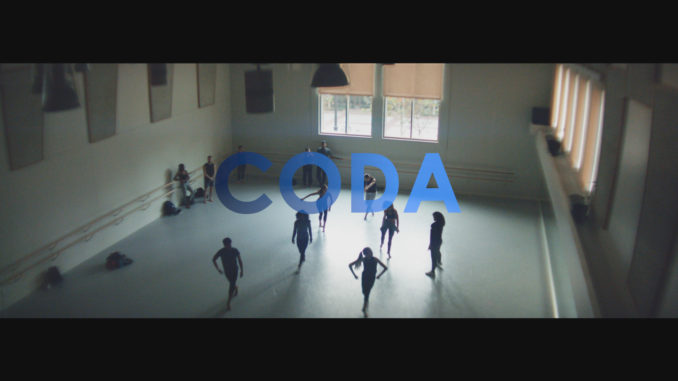
Review Fix chats with Erika Davis-Marsh, who tells us all about her film, CODA, breaking down the inspiration for it, the interaction between the cast and her goals for it moving forward.
Review Fix: What inspired this film?
Erika Davis-Marsh: It was a combination of several things. First, my brother-in-law is deaf and so I began learning American Sign Language and becoming exposed to Deaf culture. I had always been a dancer. And I thought dance and ASL really had a lot of things in common. They both express emotion and story in a physically similar way.
So I wanted to tell a story in this world for a long time. Then I went back to grad school, and I had a hard time adjusting to being back in school, it wasn’t an easy fit for me. And that combined with some of my nephew’s CODA experiences led me to write Alex’s journey.
Review Fix: How difficult was this film to put together?
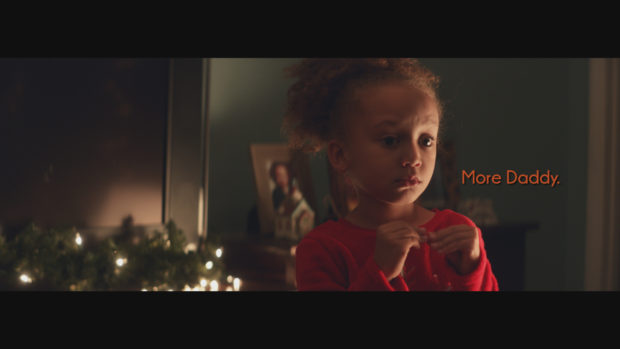
Davis-Marsh: Well, it took me two years from the first draft of the short to get to the finished product. This was my graduate thesis at USC. I find every film a challenge to make, but trying to balance classes, and this complicated project was hard. I thought we would have the most trouble casting Alex and the dancers. However, once we had Tyce Diorio (So You Think You Can Dance) on board that went really smoothly. It did take a lot of time and effort to make all the pieces of the final dance come together. We had an original song written for CODA. We had 16 dancers at rehearsals, which sometimes was a scheduling nightmare. And then we did all the lighting tech and final performance shooting in a day and a half.
The hardest part for me was post-production. We had to create a deaf soundscape for the film. We couldn’t just pull bar background tracks, because they had too much noise. And during the ASL dialog scenes, it was stunning how distracting the most mundane noise could become. Editorially we had to find the visual language for the film. So many traditional scenes let the dialog play over the listener’s shot so we can see their reaction. And we hear, rather than see, the acting choices in the voice of their off-screen partner. But we need to see the actors face to understand the inflections of acting in ASL. So we really had to think about when to cut, what character to be showing and where the subtitles were going to be placed. Every editorial decision had to be balanced with performance, ASL continuity, and subtitle readability and placement. That took a lot of time and effort.
Review Fix: What films have inspired it the most?
Davis-Marsh: CODA was inspired by my love of dance films. Turning Point, Step-Up, Center Stage, and Billy Elliot all influenced me. I especially loved how Billy Elliot is as much about the family and town as the dance. I was also going for a feminine indie vibe like Diablo Cody’s Juno.
Review Fix: What have you learned about yourself through this entire process?
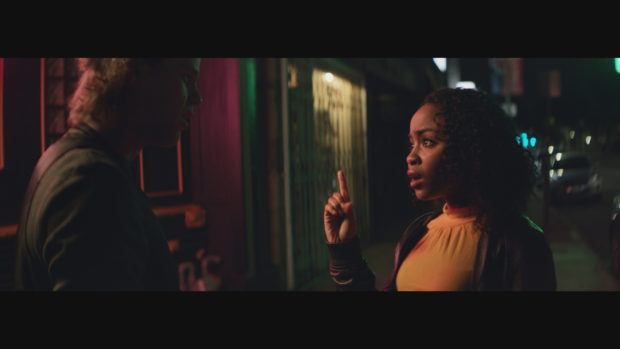
Davis-Marsh: CODA is the biggest production I have helmed so far. And I really learned to hold a strong vision for my team. There were so many elements that had to be pulled together and coordinated by various crews, and it was up to me to make sure they all had the same vision. I wasn’t the one to solve all the problems, but I had to approve the solutions. And I had to make quick decisions. The process gave me so much confidence to take on equally ambitious future projects.
Review Fix: Tell me about the cast.
Davis-Marsh: The part of Dad was written especially for CJ Jones (Baby Driver), who is also my brother-in-law. He is a drummer and Josh’s character was partly inspired by him. My sister and producer, Cassandra Jones, has been very involved in the Deaf acting community. That is how she and CJ initially met, at Deaf West Theater Co. She reached out to many actors personally and set up a series of auditions at USC. Some of the actors we knew, others submitted themselves via the usual casting methods. We posted in as many Social Media forums as possible to reach the widest casting net possible. Antoinette Abbamonte was an actress that Cassandra knew well, and she recommended her to play the mom. We were super excited when Ryan Lane (Switched at Birth) came in to audition for us. He was someone who I had been thinking of when I wrote the part of Josh. So many amazing deaf actors and actresses auditioned for us. I wish we could have cast them all. Deaf actors play all the deaf characters that you see in the film. It was crucial to me that we cast authentically.
We also were blessed with amazing child actors, all of them came from the Osbrink Agency. Young Alex was played by the fantastic Mykal-Michelle Harris (Mixed-ish) and Sade Devine in the flashback scenes. It’s exciting to see their careers take off.
Review Fix: The actress who plays Alex is phenomenal. What drew you to Kerrynton Jones?
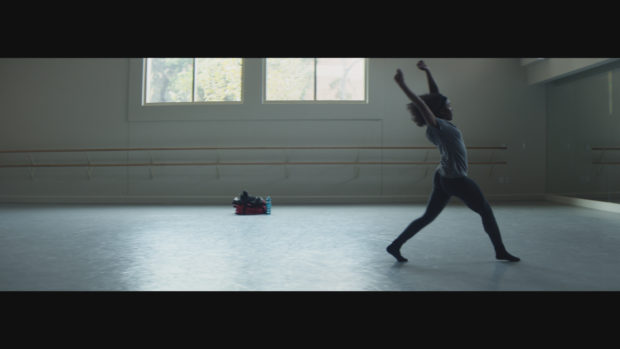
Davis-Marsh: Isn’t she fantastic! Kerrynton came through a recommendation from our choreographer Tyce. So right off the bat, she blew us away with her dancing. But Alex was a tough role to cast. She needed to be of mixed-race, a great dancer, an amazing actress, and she needed to know or learn American Sign Language fluently. We gave the actors auditioning for Josh and Alex a scene in ASL and provided a practice video. And Kerrynton just knocked it out of the park with her emotional connection to the material, and her ability to convey it in ASL. In so much of the film, Alex doesn’t speak. In fact, her longest scenes are in American Sign Language. Kerrynton had that right mix of passion and vulnerability that I needed for Alex.
Kerrynton learned American Sign Language for the film. Her scenes with Ryan were easy to shoot because of their adorable chemistry. I was fortunate she auditioned for us early and checked off what might have been the hardest role to cast.
Review Fix: What was the feeling like on set?
Davis-Marsh: I love being on set. I think the subject matter and the complexity of the shoot made everyone excited to be there. Two days really stick out for me. Many of the background extras at the bar were deaf, and we needed to relay all their movement cues visually. When I yelled ACTION, visual cues were sent down a chain of interpreters to cue all the background actor’s movements. There was probably more off-screen action than on-screen action that day.
Interpreters made sure the actors were always clear about my directions and could easily communicate with me. We also used them to relay general set communications as well. With a set full of deaf actors, we had to have ASL interpreters always ready, communicating real-time information, so that everyone would be in the loop.
Filming the final dance scene was an incredible act of coordination for cast and crew. We had sixteen dancers, a camera on a jib arm, and a theatrical lighting designer to coordinate the on-stage lighting changes. The dancers were terrific filming the dance over and over again. It was a day of non-stop work for all of us, but I am so proud of the final product.
Review Fix: Why is the topic of this film important today to you?
Davis-Marsh: Diversity is such a buzzword these days that I think we forget how little of film and television is actually diverse, especially for characters with disabilities. I want to make films about the people in my life. I have Deaf and CODA family members. I want them to see themselves reflected in the stories I tell. Plus more and more young people are coming from mixed cultural and racial backgrounds. People are struggling with labels and with belonging. I want to make films about people who live in the social cracks and still find ways to thrive.
Review Fix: What’s next?
Davis-Marsh: I am working on a feature version of CODA. Several producers have expressed interest. I would love to delve deeper into Alex’s story. I also have a Rom-Com, loosely based on the time I was a bridesmaid without a plus one. I recently directed an episode of UnCorked, a funny web-series about love and women of a certain age that you can find on Vimeo.
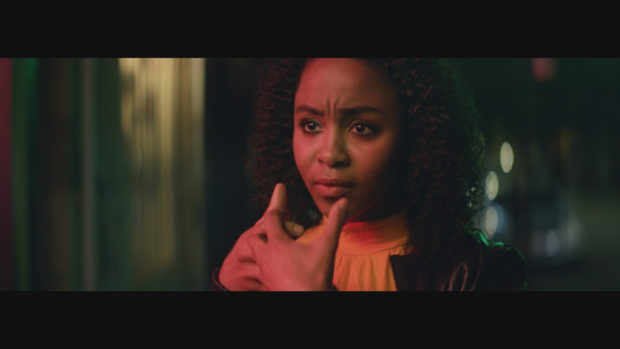
Review Fix: Anything else you’d like to add?
Davis-Marsh: If anyone is interested in following CODA, we are @codamovieusc on all social media. If you want to follow me, I am @edavismarsh on social media. We have lots of exciting announcements coming soon. Please do reach out if you want to know what’s happening next for CODA. And please support diverse talent and authentic casting; it really does make all the difference.


Leave a Reply